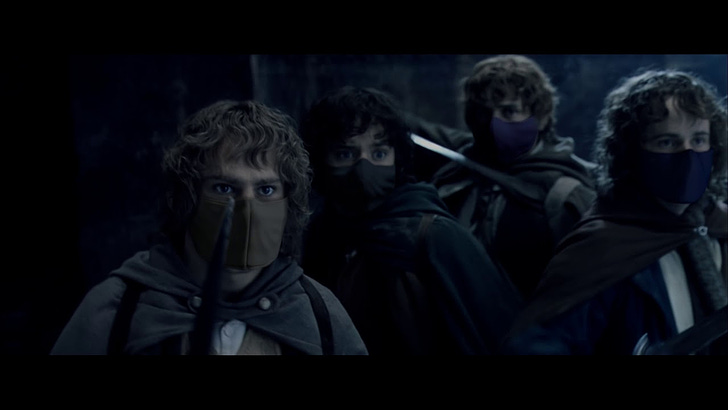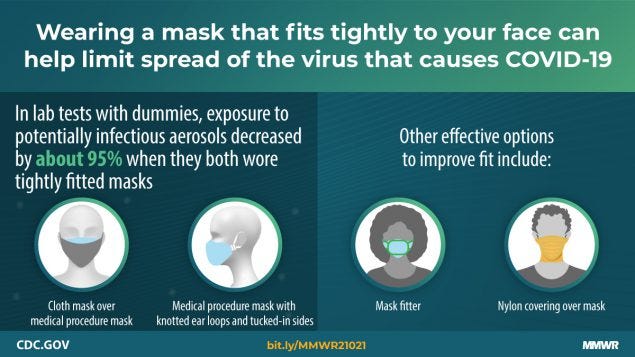Two masks really are better than one
But US officials will settle for one if more people comply. Check out the new #MaskUp campaign by the Ad Council.
The Ad Council’s new #MaskUpAmerica materials are fun. Let’s hope they are effective, too. Here’s one spot with masked celebrities:
Last year’s Mardi Gras likely caused 50,000 or more COVID-19 cases and dramatically increased the spread of the novel coronavirus around the USA, says a team led by researchers from the Scripps Research Institute and UCLA in a pre-printed paper (not yet peer-reviewed.) Analyzing the genetic signatures of viral samples, the team concludes that the COVID-19 virus was circulating but undetected in the USA before Mardi Gras and the New Orleans crowds accelerated early transmission. If only people on Bourbon Street were wearing masks… which is what the CDC recommends for Mardi Gras celebrations this year.
The CDC’s Dr. John Brooks, chief medical officer for the agency’s COVID-19 response, says new research suggests that the close fit of a cloth mask combined with the filtration of a surgical mask protects almost as well as the N95 respirators worn by professionals.
The CDC is unlikely to change from the present recommendation for everyone to wear a single face covering. However, the agency updated its guidance on what types of masks to use, including tips on avoiding counterfeit masks.
The Department of Homeland Security has seized tens of thousands of counterfeit 3M N95 masks. Some of the fake masks were delivered to hospitals and other care sites, the agency said.
Mask compliance across the USA has increased steadily since last Fall but remains lower than countries where Covid rates have been controlled. At the same time, anti-mask protests have also increased.
A few other stories:
The Biden administration is considering mailing masks to targeted populations, according to NBC News. The Trump administration spent $640 million on masks made by companies such as Hanes last Spring, then stopped the planned mailing of masks to every home in the USA.
With the Pfizer and Moderna vaccines highly perishable, healthcare professionals have struggled with what to do if vaccine doses have been prepared but nobody else is there to get the shots. In many places, county health officials direct vaccine sites to go ahead and give them to anyone if priority individuals are not available. New York loosened its rules to permit this instead of wasting precious vaccine. In Texas, when a physician took the remaining doses at the end of the day to people he knew, he got fired.




